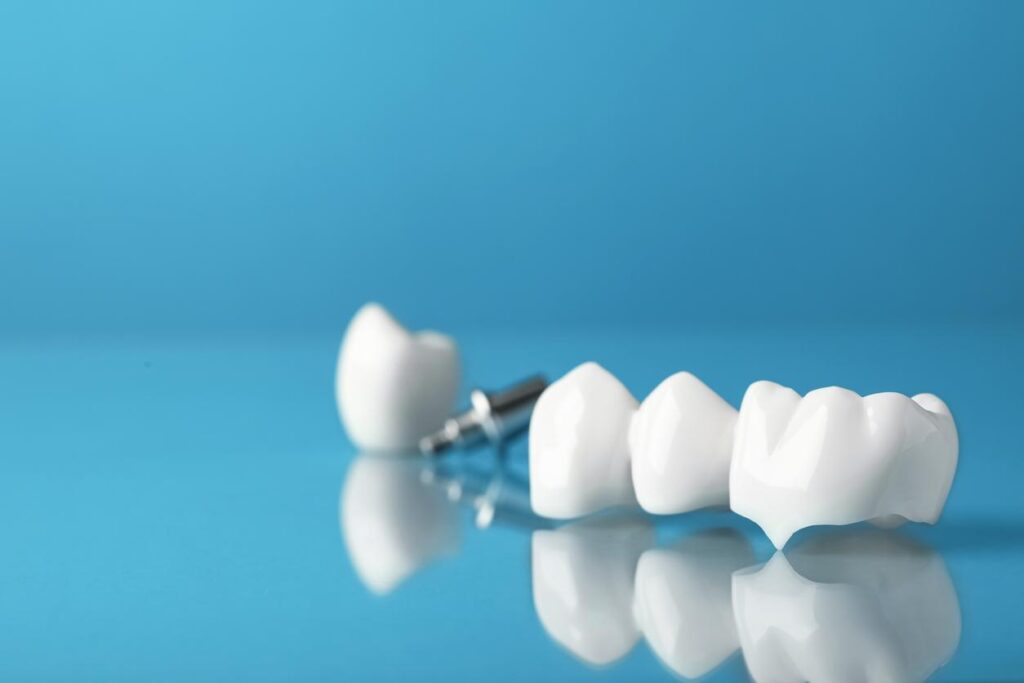
If you need a tooth repaired or a missing tooth replaced, Northalsted Dental Spa can help! We utilize dental crowns and bridges to effectively protect and restore teeth while improving the look of your smile.
Our own Dr. Michael Griffin has spent years fixing and perfecting patient smiles. He and the rest of the team at Northalsted Dental Spa will develop a unique treatment plan personalized to your needs.
We offer a comprehensive range of restorative, general, and cosmetic dentistry services to protect your oral health. Get in touch with our office today to find out if you’re a good candidate for dental crowns or dental bridges.
What Are Dental Crowns?
A dental crown, also known as a “dental cap,” is a dental prosthesis that protects damaged teeth. Crowns fully encapsulate natural teeth, restoring strength and integrity after injury or decay. Dentists also use crowns in implant procedures to act as artificial teeth.
Alternatives to Dental Crowns
Tooth loss can occur for many reasons, like genetics, disease, decay, or dental trauma. Regardless of the cause, missing or compromised teeth can have a detrimental effect on self-confidence and oral health.
Dental bridges are a type of dental prosthesis made of several artificial teeth. They can be used to replace one or multiple missing teeth. They are anchored in place using dental crowns which sit over existing teeth or dental implants.
Why Would I Need a Crown or Bridge?
Bridges and crowns are both extremely effective at addressing a number of dental health concerns. Your individual needs will determine which one is the optimal choice for you.
Crowns:
- Repair Cracked Teeth
- Strengthen and Protect Severely Decayed Teeth
- Cover/Reshape Worn Down Teeth
- Cover Discolored, Misshapen, or Uneven Teeth
- Reinforce Large Fillings (Teeth that have large fillings and not much natural tooth structure remaining often need crowns to hold the tooth together.)
- Strengthen Teeth After Root Canal Therapy
Dental Bridges:
- Replace Missing Teeth
- Replace Teeth That Require Extraction
When you come to Northalsted Dental Spa for a consultation, we’ll perform an exam to outline the best treatment plan for you. We’ll explore all available procedure options so you can make the best choice for your dental health.

How Long Does a Dental Crown Take To Be Completed?
It typically takes between 1-2 appointments to complete a dental crown restoration. If a patient requires tooth extraction, the process may take longer.
The Procedure
Understanding the dental crown procedure can help you know what to expect when you come in for your restoration.
Your dentist will first numb the treatment area with a local anesthetic. Then, the damaged tooth is reshaped to make space for the crown. Your dentist will then take an impression of the prepared tooth and surrounding teeth to create a mold for your custom crown.
A dental lab will use the impression to craft a permanent crown, which usually takes a few weeks. In the meantime, you will receive a temporary crown to protect the tooth.
At your second appointment, your dentist will remove the temporary crown and place the permanent one. They will make sure the fit and color of the new crown are appropriate and adjust as needed. The permanent crown will then be adhered to the prepared tooth with a special dental adhesive. Your dentist will make final adjustments to ensure the crown is comfortable and functions properly.
What Can You Expect During a Dental Bridge Procedure?
Before a dental bridge procedure, your dentist will examine your teeth and take X-rays. They will use the imaging to assess the condition of your teeth and jawbone structure.
In preparation for the bridge, your dentist will prep the abutment teeth by reshaping them and removing some enamel. These are the teeth sitting on either side of the gap left behind by a missing tooth. Abutment teeth receive crowns to hold the bridge in place.
Next, your dentist will take impressions of your teeth to create a custom bridge. You may receive a temporary bridge to protect your teeth until the permanent bridge is finished. This process usually takes a few weeks.
Once the permanent bridge is ready, you’ll return to the office for a second appointment. Your dentist will remove the temporary bridge and check the new bridge for comfort. They’ll make any necessary adjustments to ensure a perfect fit and then permanently cement the bridge in place.
Cost of Dental Restorations
Dental crown costs vary from patient to patient depending on the extent of the procedure. The same can be said for dental bridges. To receive an accurate estimate, we invite you to contact us at Northalsted Dental Spa to book a consultation. We offer financing options to help all our patients receive the dental care they need.
What If Your Dental Crown Falls Out?
If you had an old dental crown that fell out, you would need to make a dental appointment as soon as possible. A loose, broken, or missing crown leaves the compromised tooth susceptible to further damage.
Temporary crowns only last a few weeks. However, permanent crowns are much more durable and can last anywhere from 5-15 years or longer with proper care. Dental crown replacement is usually a simple procedure with long-term benefits.
Caring for Your Restorations
Crowns: To care for your dental crowns, maintain good oral hygiene. Make sure to brush your teeth twice a day and floss daily, especially around the crown area to prevent plaque buildup. Avoid chewing hard foods that could damage the crown, such as hard candy or ice.
Bridges: To care for your dental bridge, maintain thorough oral hygiene just as you would for a crown. Use a special floss threader, interdental brush, or water flosser to clean around the bridge effectively. Avoid eating sticky or hard foods that could damage or dislodge the bridge.
Regular dental exams and cleanings are essential to monitor the health of your dental restoration and surrounding teeth. Be sure to book an appointment every six months for check-ups.
Advantages and Disadvantages of Dental Crowns and Bridges
Advantages:
- Strength and Durability: Both crowns and bridges can last between 5-15 years.
- Restored Smile: Crowns and bridges can improve the appearance of your smile. Crowns cover discoloration and restore the natural look of damaged teeth. Bridges fill gaps left behind by missing teeth.
- Protection: Crowns protect weakened teeth from further damage or decay. Bridges help prevent tooth shifting and gum disease by replacing missing teeth.
- Improved Oral Function: Crowns and bridges restore the function of your smile, helping you to eat and speak normally.
Disadvantages:
- Tooth Preparation: It’s necessary to remove some of the natural tooth structure to place a crown or bridge.
- Cost: Dental restorations can be expensive. However, they can help prevent the need for costly and invasive dental procedures in the future.
- Sensitivity: Teeth may become more sensitive to temperature changes or pressure after undergoing a restorative procedure.
Contact Us for Superior Dental Restorations
At Northalsted Dental Spa, our commitment to our patients extends beyond simply fixing dental problems. We want to protect your oral health and make sure you have a fully functional, beautiful smile you can feel proud of!
If you’re concerned about a missing or damaged tooth, call (773) 296-0325 or contact us online to schedule an appointment. We offer a variety of treatment options, from dental crowns to All-on-4 dental implants. Find out what a great restoration can do for your smile!



